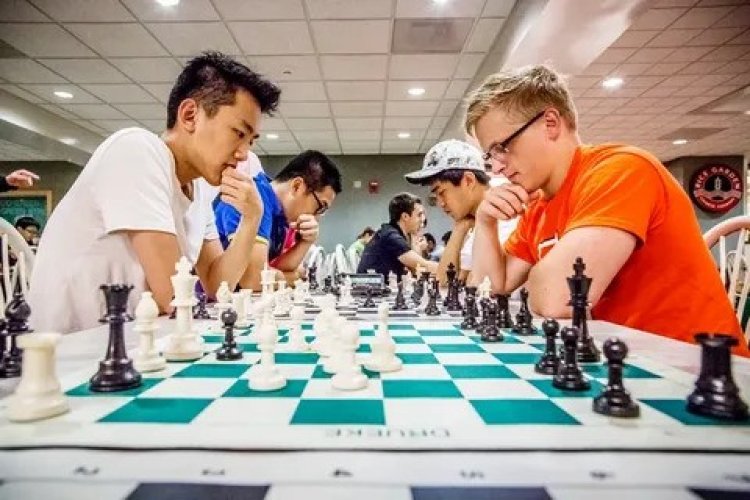Chess: The Mind's Playground and Society's Unifier
Chess is often perceived as a solitary, intellectual pursuit—a battle of wits waged between two individuals hunched over a board.

While this image isn't entirely inaccurate, chess also offers a unique opportunity for team building and strengthening bonds through group activities. Beyond its competitive nature, chess has the power to foster collaboration, communication, strategic thinking, and camaraderie among participants. Below, we will explore how group online chess class activities can be a powerful tool for enhancing teamwork and building stronger connections among individuals.
- Improved Cognitive Abilities: Chess is a game of strategy, requiring players to think several moves ahead, analyze patterns, and anticipate their opponent's actions. Regular engagement in chess enhances cognitive skills such as critical thinking, problem-solving, and spatial reasoning. These mental abilities extend beyond the chessboard, helping individuals make better decisions in everyday life.
- Enhanced Concentration and Focus: Successful chess play demands unwavering concentration and focus. Players must maintain their attention on the game for extended periods, which can translate into improved concentration in other areas of life, such as work or academics. This heightened ability to concentrate can lead to increased productivity and better performance.
- Boosted Memory: Chess involves memorizing a vast array of possible moves, strategies, and openings. Players must recall past games, their outcomes, and lessons learned. This exercise in memory improves memory retention and recall, which can be valuable in academic pursuits and professional settings.
- Stress Reduction: Engaging in chess can serve as a stress-relief mechanism. The game's immersive nature requires players to focus their attention on the present moment, temporarily distracting them from external stressors. This therapeutic aspect of chess can contribute to better mental well-being and stress management.
- Enhanced Patience and Resilience: Chess teaches patience and resilience as players encounter losses, setbacks, and unexpected challenges. These experiences are invaluable life lessons as individuals learn to bounce back from defeats and persevere in the face of adversity. Patience and resilience are essential qualities in personal and professional growth.
- Improved Problem-Solving Skills: Chess is essentially a continuous series of problem-solving exercises. Players must assess the current game state, identify threats and opportunities, and devise effective strategies. This translates into better problem-solving abilities outside of the game, enabling individuals to tackle complex issues more effectively.
- Cultivation of Analytical Skills: Chess requires players to analyze positions, evaluate potential moves, and assess the consequences of their decisions. These analytical skills extend to other areas, helping individuals approach challenges with a structured and methodical mindset.
- Social Interaction and Bonding: Chess is often played in social settings, whether it's in a casual game at a coffee shop, a club, or during organized tournaments. These opportunities for social interaction can lead to new friendships and foster a sense of community among players. Chess clubs and organizations create spaces for like-minded individuals to connect and share their passion for the game.
In conclusion, the social benefits of group chess lessons are diverse and far-reaching. This intellectually stimulating game not only enhances cognitive abilities but also promotes personal growth, stress reduction, and positive social interactions. Whether played casually or competitively, chess offers individuals an opportunity to develop important life skills and build meaningful connections within their communities.

















